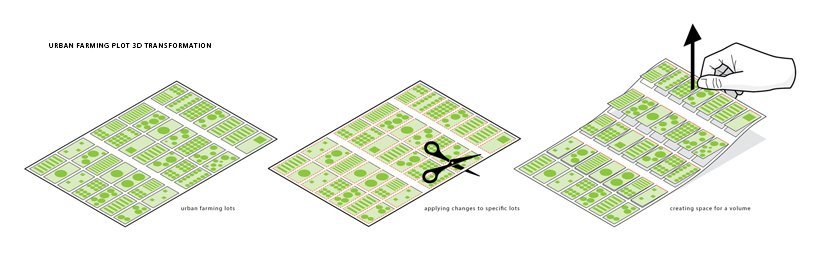An Overview:
Dubbed ‘the gardens of the future’, the project focuses on natural food production. MJZ, an architecture firm has introduced a new urban farming masterplan in Poland. The urban farming masterplan aims to integrate social activities with the public interest in the environment and its protection.

The urban farming masterplan proposes fresh products grown and sold in small markets in every district that will be accessible by everyone. Following the same accessibility principle, the project alleviates the need for mediators and cost factor for the food delivery chain.
Thought of Design:
The proposed urban cultivation areas can also serve as testing locations for new technologies and techniques that experiment with growing, researching, and selling food within the city. ‘Organic Nutrition Research Center’ is also included in the proposed masterplan to discover and develop a well developed sustainable scheme.

Similar to the plantations, the idea of growing buildings from the soil is also positioned underneath the hill. It is created by lifting up the urban farming allotment grid, visually making it a part of the landscape. The structures will mostly be conceived from engineered timber from certified plantations.
The complete centre is designed as a big technological and organic laboratory with spaces available for guests. There is an allocation of more private rooms for experimentation, that is not accessible but still is visible to everyone when fully glazed. A well-defined and generous entrance hall greets visitors and performs as a roof covered for educational events on special occasions. The whole structure design is based on a wooden waffle, resting on concrete walls that support the excavation soil from the sides.

Technological advancements like hydroponics, robotic, or AI that could be implemented in the project. The technology can further be used to boost the production of food surplus in case of emergency. Existing urban farming plots already have efficient physical and mental relief steppingstone mechanism in COVID-19 pandemic. ‘Gardens of the future’ are believed to make cities more resilient to epidemics.



